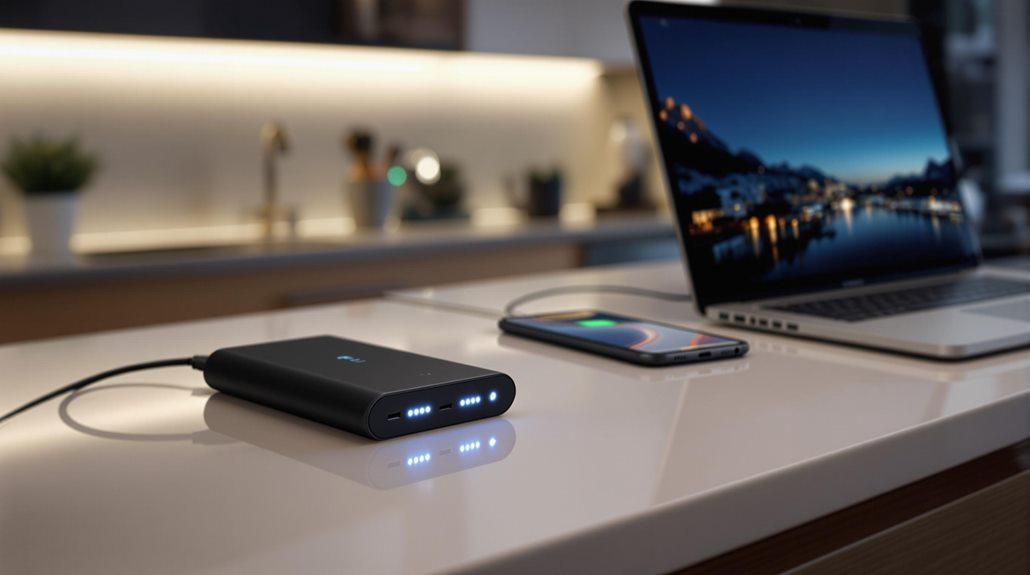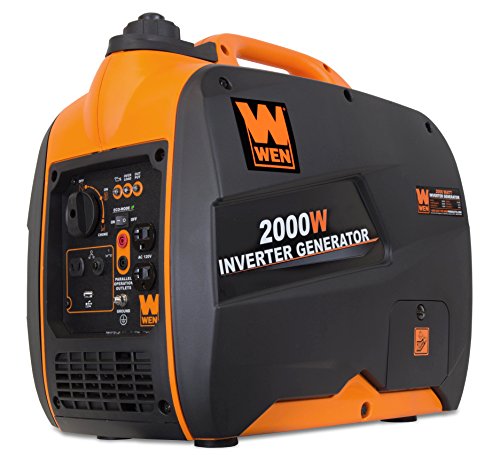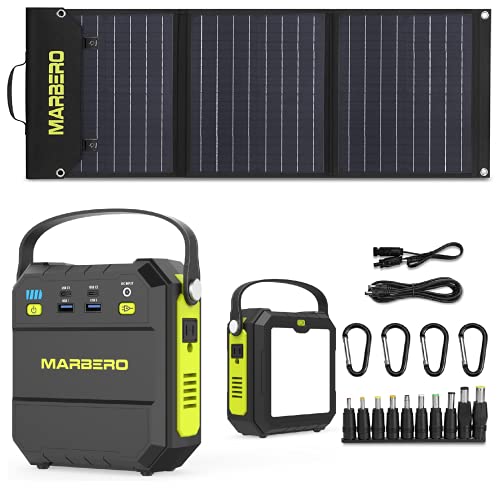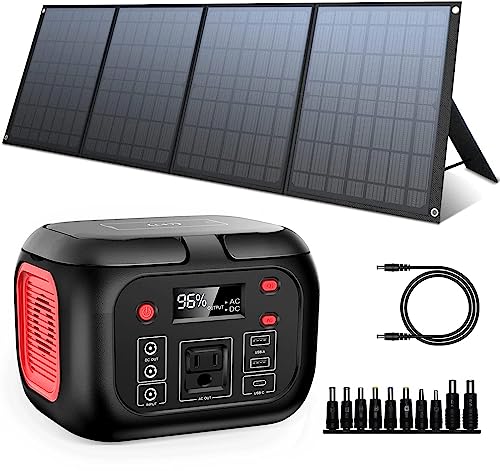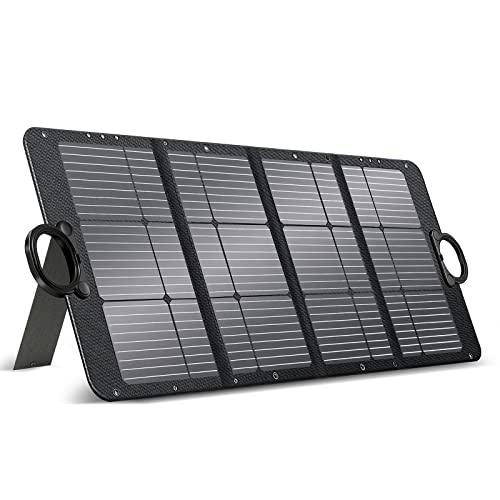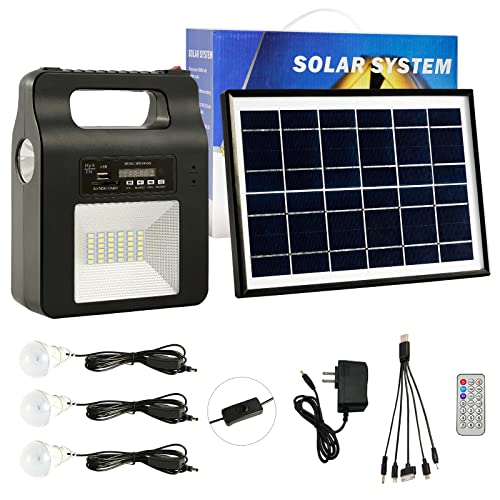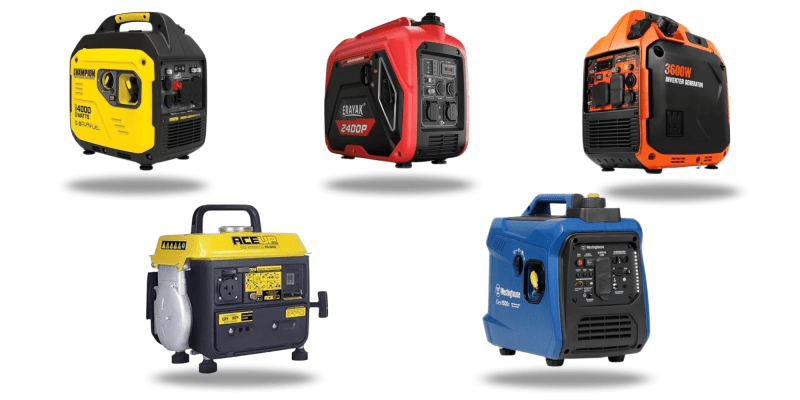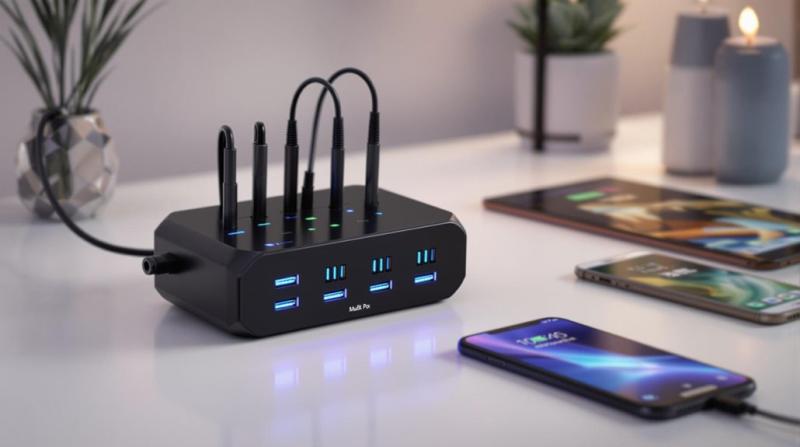Portable backup power systems provide reliable emergency power during outages through high-capacity battery stations like the EcoFlow DELTA Pro (3,600W) or Yeti PRO 4000. You'll find these systems offer 1,500Wh to 25kWh capacity, powering 4-10 critical home circuits for 1-5 days. Modern units feature LiFePO4 batteries with 3,000 charge cycles and integrate with solar panels for sustainable charging. You'll need professional installation ($500-$2,000) including a transfer switch for seamless 20ms switchover. These systems prioritize essential appliances like refrigerators and medical devices, ensuring your home stays functional during blackouts. Exploring specific models and configurations will help you determine the ideal setup for your needs.
Key Takeaways
- Portable backup systems provide 1,500Wh to 25kWh capacity, enough to power critical home circuits during outages.
- Systems like EcoFlow DELTA Pro offer fast charging within 65 minutes and can support 4-10 essential home circuits.
- LiFePO4 batteries deliver reliable performance with 3,000 charge cycles and maintain 70% capacity after 10 years.
- Solar integration enables sustainable power backup with charging inputs up to 16.8kW using compatible 400W panels.
- Professional installation with transfer switches ensures seamless 20ms switchover during power failures, protecting critical appliances.
Power Station Models and Capacity
When pondering portable backup power for your home, today's power stations offer an impressive range of capacity options. Leading portable power stations like the Yeti PRO 4000 and EcoFlow DELTA Pro provide flexible solutions that can support multiple home circuits during outages, with capacities ranging from 1,500Wh to an extensive 25kWh. With fast charging capabilities becoming standard in modern units, efficiency and performance have reached new heights, especially in lithium-based systems.
You'll find that modern Home Battery Backup systems adapt to your specific needs, whether you're looking for basic or holistic coverage. The DELTA 2 Max and DELTA Max models deliver quick charging capabilities, reaching 80% capacity in just 65 minutes, while offering expandable storage between 2-6kWh. For larger homes, battery backup systems like the Tank PRO 4000 allow you to combine up to four batteries per system, reaching an impressive 20kWh capacity. This scalability means you can start with a smaller system and expand as your needs grow.
When selecting your backup solution, you'll want to evaluate your home's power requirements carefully. With configurations available from 4kWh to 20kWh, you can choose a system that matches both your essential power needs and budget constraints.
Battery Technology Fundamentals
The heart of any portable backup system lies in its battery technology, with LiFePO4 batteries leading the charge in modern power stations. You'll find these advanced batteries offer exceptional safety features and an impressive lifespan of up to 3,000 charge cycles, substantially outperforming traditional lithium-ion options in both durability and stability. Regular monitoring of discharge rates and temperatures helps maintain peak performance and prevent premature wear. You'll discover these systems are designed to maximize efficiency through sophisticated charging algorithms.
When you're exploring battery capacity options, you'll discover a wide range from 1,500Wh to 20,000Wh, letting you tailor your power storage to match your specific needs. Modern battery backup systems maintain about 70% of their original capacity even after a decade of use, ensuring you'll have reliable power for years to come. The technology incorporates sophisticated temperature monitoring, checking conditions 100 times per second to protect your investment and maintain peak performance.
You'll appreciate that these EV-grade battery systems pack enough punch to power essential home appliances during outages. The robust power delivery means you won't have to worry about starting up demanding devices like refrigerators, as these systems are designed to handle substantial power draws while maintaining stable output throughout their operation.
$490.59
4.46 out of 5 stars2000W Gas Inverter Generator, CARB Compliant
Efficient and Eco-Friendly Power Solution for Your Outdoor Adventures
Product information
Product Review Score
Product links
Solar Integration Options
Through advanced solar integration options, you'll find flexible ways to power your backup system using renewable energy. Top solar brands like Jackery and Goal Zero offer proven reliability for home backup needs. The Nomad 400 PRO Solar Bundles offer versatile configurations with both 2 and 4 panel setups, letting you customize your solar charging capacity based on your home backup power needs. You can directly connect these panels to your backup batteries for continuous energy production during outages.
The Boulder 200 Briefcase solar panels provide a portable solution that you'll appreciate when mobility matters, while still delivering reliable charging capability for your power station. With solar charging capacities ranging from 5.6 to 16.8kW input, you're able to substantially reduce charging times and extend your backup power duration. Your system can potentially achieve a full day's worth of power with just one hour of solar charging, making it an efficient addition to your home backup power setup. When you're planning your solar integration, consider the 400W portable panel options, which seamlessly connect to home backup batteries and provide a dependable source of renewable energy during unexpected power disruptions.
Essential Home Circuit Support
Building on solar integration capabilities, your home backup system needs strategic circuit support to maintain power where it matters most. When selecting a system, understanding total power needs helps determine the right capacity for your household circuits. Modern backup systems can effectively support 4-10 essential circuits in your home, guaranteeing that critical appliances and devices stay operational during outages. You'll need professional installation of a transfer switch or smart home panel to properly connect your backup battery system to your home's electrical infrastructure.
Systems like the EcoFlow DELTA Pro offer sophisticated circuit control, allowing you to designate which home circuits receive priority power during emergencies. You can customize your backup configuration to support indispensable equipment such as refrigerators, medical devices, and communication systems. With a rapid 20 ms auto switchover capability, you'll experience minimal disruption when the main power fails. Depending on your energy consumption patterns and system setup, backup batteries can power your essential circuits for one to five days. This flexibility guarantees you're prepared for both brief interruptions and extended outages. By carefully selecting which circuits to support, you can maximize the efficiency of your backup system and maintain key household functions when they're needed most.
$229.98
$154.99
4.69 out of 5 starsMARBERO Solar Power Station with Panel Kit
Unleash the Power of the Sun with MARBERO's Solar-Powered Portable Generator and Panel Kit
Product information
Product Review Score
Product links
Installation and Transfer Requirements
Proper installation of home backup systems demands professional expertise and careful attention to safety requirements. You'll need to hire a certified electrician to perform the installation, as this guarantees compliance with safety codes and proper integration with your home's electrical system. High-capacity power solutions provide reliable operation for 500-2000 charge cycles when properly maintained and installed. The cornerstone of any backup power installation is the transfer switch, which safely connects your backup system to your home's circuits while preventing dangerous back-feeding during outages.
Your installation costs will typically range from $500 to $2,000, depending on your home's electrical configuration and the complexity of your chosen system. The process includes mounting your backup unit, whether it's a wall-mounted battery system or a generator placed on a concrete pad, and installing a Smart Home Panel that manages your critical circuits. Your electrician will configure the transfer switch to support between 4 and 10 essential circuits, letting you prioritize power to your most important appliances during outages. This intelligent designation of critical loads guarantees you'll maintain power to critical systems like refrigeration, heating, and security equipment when you need them most.
Runtime and Performance Expectations
When selecting a home backup system, you'll need to carefully consider your power requirements and runtime expectations. Most battery backups can provide power for one to five days, depending on your system's configuration and how you use energy. Your specific needs will determine the ideal capacity for your situation.
The duration of battery power varies considerably based on what you're running. For instance, a 6kWh system can keep your refrigerator running for 24-36 hours, while the same system might power essential medical equipment for several days. To maximize runtime, you'll want to focus on essential appliances through critical load circuit designation, which helps prioritize power distribution during outages.
Modern systems like the EcoFlow DELTA Pro offer robust performance with 3,600W output and 7,200W surge capability, letting you run multiple appliances simultaneously. If you need extended runtime, expandable systems such as the Tank PRO 4000 allow you to add battery modules, potentially extending your backup duration beyond the typical five-day limit. This flexibility guarantees you can adapt your system to meet your specific power needs during extended outages.
Accessories and Expansion Components
A thorough home backup system relies on more than just batteries and power units. To maximize your system's functionality, you'll need key accessories that enhance both performance and usability. The Haven 10 Transfer Switch lets you manage your home's circuits with precision during outages, ensuring power flows exactly where you need it.
For a professional-grade installation, the Home Integration Kit provides everything you'll need to connect your backup system to your existing electrical infrastructure. You can expand your system's reach with Extension Cables that offer multiple connector types, allowing you to power various devices throughout your home. When mobility is essential, the Yeti Roll Cart makes transporting your portable power station between locations effortless and secure.
Protection during storage and transportation is equally important for your investment. The Yeti Faraday case shields your equipment from environmental factors that could compromise its performance or longevity. By incorporating these accessories into your backup power setup, you'll create a more versatile and reliable system that's ready to support your household during unexpected outages.
Frequently Asked Questions
How to Power Your Home Through an Outage Without a Gas Generator?
You can power your home during outages using an emergency battery system with an inverter setup, which provides clean, quiet backup power. Connect essential circuits to the battery system for automatic switchover when the grid fails. For extended outages, integrate solar panels to recharge your batteries during daylight hours. Modern lithium battery systems can power multiple appliances and electronics, while qualifying for a 30% tax credit to offset your investment.
Can a Portable Power Station Be Used as UPS?
Just as a safety net catches a falling trapeze artist, your portable power station can indeed serve as a UPS. You'll get reliable backup battery protection during power interruptions, with most units switching over in milliseconds. For emergency supply needs, you'll find multiple charging ports to keep your essential electronics running smoothly. Modern stations, especially those with LiFePO4 batteries, offer seamless protection with zero downtime, protecting your sensitive equipment perfectly.
What Is the Alternative to a Generator for a Power Outage?
You can rely on emergency battery systems as effective alternatives to generators during power outages. These modern systems, which include home inverters and solar backup capabilities, offer quiet, clean power without the need for fuel. They'll provide reliable backup power for your essential appliances and can be recharged through solar panels or standard outlets. Many units now feature smart controls and automatic switching, making them convenient and user-friendly alternatives.
What Is the Best Power Source During a Power Outage?
Your best power source during an outage depends on your specific needs, but you'll find a few reliable options. An emergency battery system offers quiet, immediate backup power for shorter outages. If you're looking for sustainable power, you can pair solar backup with rechargeable options for continuous energy generation. For extended outages, traditional generators remain effective, though they're noisier and require fuel. Consider your budget and power requirements when choosing.
